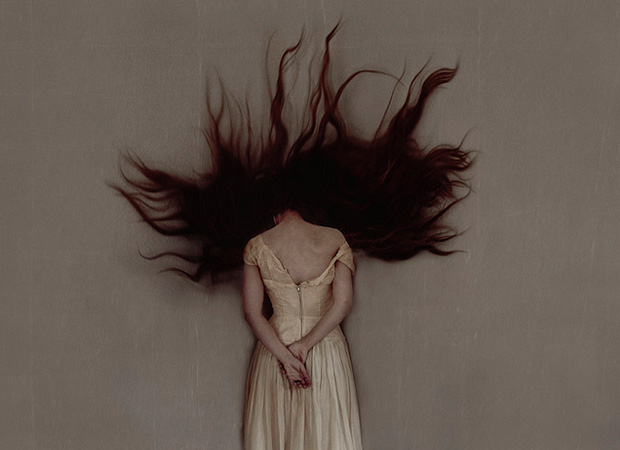 Photo stolen from amazing Kyle Thompson (I'm kidding, he gave me permission to use his pics on my blog).
Photo stolen from amazing Kyle Thompson (I'm kidding, he gave me permission to use his pics on my blog).
Every day, after I'm done writing, I read. And every next day, WHILE writing, I usually find myself using a word or an allegory or an exclamation from the book I read the day before. It's never exact yet always reminiscent of what somebody else said. I feel like a thief, but when I reread what I wrote, it sounds original. How is that possible? Let me illustrate with some stolen quotes here:
"Bad artists copy. Good artists steal." Pablo Picasso said this. I don't know exactly he meant while saying it, but here is what it means to me. There are layers to any work of art, be it a painting or a book. What an average person sees, is on the surface. What another artist sees, is the underground structure that supports what's above. Hence, if you simply take what you see, its copying, and usually any reader will detect it right away when reading your stuff (or, what you CLAIM is yours but really isn't). On the contrary, if you yank out the very structure from underneath, nobody will see it in your finished work, because you'll dress it up with new decorations and pass it over as your own. For example, I read in Stephen King's Wizard and Glass yesterday a reference to a sound being an auditory version "of biting into a lemon." It struck me as powerful, and today I used a similar allegory in my own writing, except I linked it to an auditory version "of mixing different colors of paint into one ghastly brown mess." See, I didn't copy, but I stole!
"Copy from one, it's plagiarism; copy from two, it's research." This one is from American playwright Wilson Mizner. And I see being true every day. Again, lots of reading is to blame (I blogged on this subject before). Everything has been already said, of course, the difference is, how it's been said. I tend to notice patterns while reading. Patterns to descriptions, dialogue, setting, you name it. They're like beads being strung onto some idea-making thread in my head. At some point, it saturates enough and spills into my own writing, yet it looks like it came from me and me alone. For example, after reading J.K. Rowling's new book The Casual Vacancy, I suddenly started adding "Well, ..." and "..., all right." and "Are you saying, ..." and "And here you thought, ..." and "Do me a favor, ..." and "..., anyway." I picked up her pattern and my dialogue started sounding more natural! Stealing, *cough*, researching again.
"It's not where you take things from - it's where you take them to." Well said, Jean-Luc Godard, well said. What I discovered is any writing consists from essentially the same elements, even the same story points, even many of the same words and beginnings and endings and plot lines. It's how you mix them all together as an author what makes a difference. It's like wit music, there are only 7 notes, yet a million possible combinations (musicians, please don't kill me if my math is wrong, the last time I played a piano was in 6th grade). So, when you take a piece of somebody else's brilliance and apply it to your own puzzle, it becomes an entirely different beast. For example, when I read Lord of the Flies, the chant those boys sang when killing the pig struck me as horrid and poetic at the same time: "Kill the pig. Cut her throat. Spill her blood." In mine it became a chant of the sirens when killing the siren hunter: "Kill the siren hunter. Suck out his soul. Tear at his flesh. Feed him to the crabs.” It's the same, and yet it's not. Stealing again?
"Nothing of me is original. I'm the combined effort of everyone I've ever known." I will close with my favorite, from one of my favorite authors, Chuck Palahniuk. Even if you're not trying, everything you say has been already said by someone else. The question then is, why would anyone listen? Because we have bad memory and need reminders. And not just any reminders, but reminders that we know. They feel warm and fuzzy and familiar: bad guys will die, good guys will win, love will conquer all, and we will all live happily every after. That's what we're rooting for, the dream that will lift us from the grey reality of existence, that's why we read books. And if you're trying to reinvent the bicycle, well, you might lose readers instead of gaining them. For example, I wrote many paragraphs in my novel starting with "Me, I'm twisting on the floor. My Daddy, he is standing and looking." I've been terrified that this is awful writing, until I saw Chuck do the same. He, in a sense, gave me permission to continue. Am I original? No, I stole again. Right out of the ether.
With that, tell me, how do you STEAL? What are your favorite quotes that help you steal like a true artist, and maybe even comment with your own examples? Please? I'd like me to steal some, if you don't mind.





